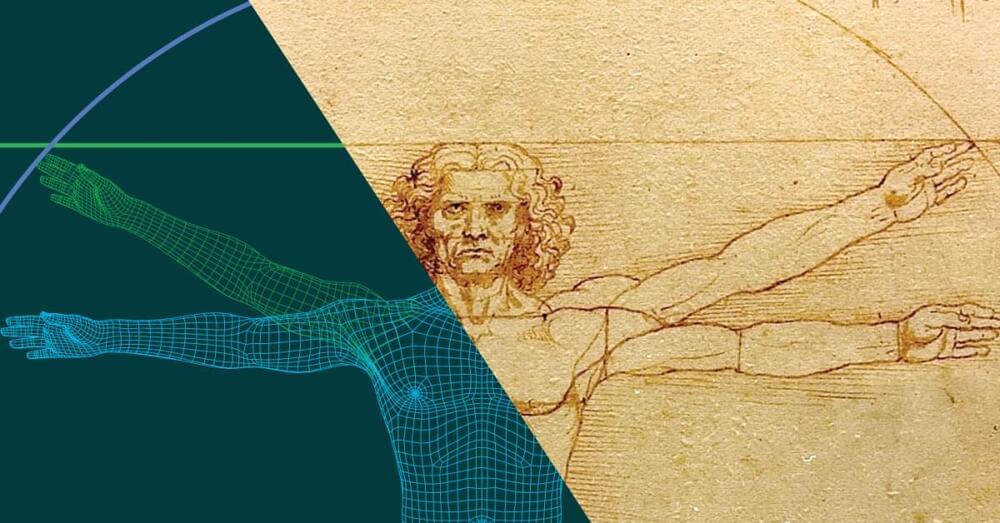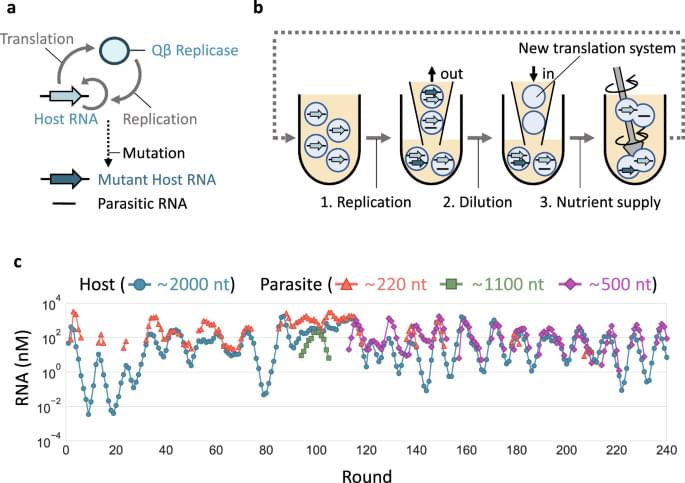Heirloom uses cheap and widely available limestone to suck carbon from the air. The latest funds will help build its first pilot-scale facility.


Automation will create new types of jobs.
Delivery robots seem to be everywhere these days. Keeping them out of trouble are human minders who might need to hop on a bike to finish the delivery themselves.
Join us on Patreon!
https://www.patreon.com/MichaelLustgartenPhD
Levine’s Biological age calculator is embedded as an Excel file in this link from my website:

· They have on-board video cameras and colour sensors to aid with guidance.
· They are essentially camera-equipped, remote-controlled flying bombs that can be directed by an operator to find a target then, when ready, plunge on to it. They explode on contact, hence the “kamikaze” nickname.
Switchblades extend the range of attack on Russian vehicles and units to beyond the sight of the user. That gives them an advantage over the guided heat-seeking missiles the Ukrainians have used against Russian tanks.

Developments in artificial intelligence and human enhancement technologies have the potential to remake American society in the coming decades. A new Pew Research Center survey finds that Americans see promise in the ways these technologies could improve daily life and human abilities. Yet public views are also defined by the context of how these technologies would be used, what constraints would be in place and who would stand to benefit – or lose – if these advances become widespread.
Fundamentally, caution runs through public views of artificial intelligence (AI) and human enhancement applications, often centered around concerns about autonomy, unintended consequences and the amount of change these developments might mean for humans and society. People think economic disparities might worsen as some advances emerge and that technologies, like facial recognition software, could lead to more surveillance of Black or Hispanic Americans.
This survey looks at a broad arc of scientific and technological developments – some in use now, some still emerging. It concentrates on public views about six developments that are widely discussed among futurists, ethicists and policy advocates. Three are part of the burgeoning array of AI applications: the use of facial recognition technology by police, the use of algorithms by social media companies to find false information on their sites and the development of driverless passenger vehicles.

If you’re anything like us you’ve been keeping a close eye on the development of RISC-V: an open standard instruction set architecture (ISA) that’s been threatening to change the computing status quo for what seems like forever. From its humble beginnings as a teaching tool in Berkeley’s Parallel Computing Lab in 2010, it’s popped up in various development boards and gadgets from time to time. It even showed up in the 2019 Hackaday Supercon badge, albeit in FPGA form. But getting your hands on an actual RISC-V computer has been another story entirely. Until now, that is.
Clockwork has recently announced the availability of the DevTerm R-01, a variant of their existing portable computer that’s powered by a RISC-V module rather than the ARM chips featured in the earlier A04 and A06 models. Interestingly the newest member of the family is actually the cheapest at $239 USD, though it’s worth mentioning that not only does this new model only include 1 GB of RAM, but the product page makes it clear that the RISC-V version is intended for experienced penguin wranglers who aren’t afraid of the occasional bug.
Beyond the RISC-V CPU and slimmed down main memory, this is the same DevTerm that our very own [Donald Papp] reviewed earlier this month. Thanks to the modular nature of the portable machine, this sort of component swapping is a breeze, though frankly we’re impressed that the Clockwork team is willing to go out on such a limb this early in the product’s life. In our first look at the device we figured at best they would release an updated CPU board to accommodate the Raspberry Pi 4 Compute Module, but supporting a whole new architecture is a considerably bolder move. One wonders that other plans they may have for the retro-futuristic machine. Perhaps a low-power x86 chip isn’t out of the question?
TL;DR: VirusTotal’s browser extension can now automatically identify IoCs in any website and enrich them with superior context from our crowdsourced threat intelligence corpus, in a single pane of glass fashion. Install in Chrome | Install in Firefox | Read the docs. Please provide feedback.
Don’t feel like reading? Check out a demo video showcasing how VirusTotal’s browser extension is now able to contextualize alerts from your SIEM.
12 years ago I wrote the very first version of the VirusTotal browser extension, now called VT4Browsers. A lot has changed since then, among other things, much smarter colleagues (Ana Tinoco and Camilo Benito) took on the development and kept improving it, including this major release.

Images of a very “boring” star are making waves across the astronomical world today – they are the first sent back from NASA’s James Webb telescope, and they have exceeded all hopes and expectations.
Having completed the self-assembly of its 18-segmented main mirror, the telescope has now taken exceptional images of an unexceptional star as a test of its capabilities. The star, known as HD84406, is 100 times fainter than what can be seen with the human eye. The star itself is of little interest, lovely though its image is – instead, astronomers are captivated by the spray of tiny dots scattered across the background. Each is a distant galaxy, and this is the first time we’ve ever been able to capture them.
In a virtual briefing, NASA officials expressed their overwhelming joy and relief at what these first images represent.
